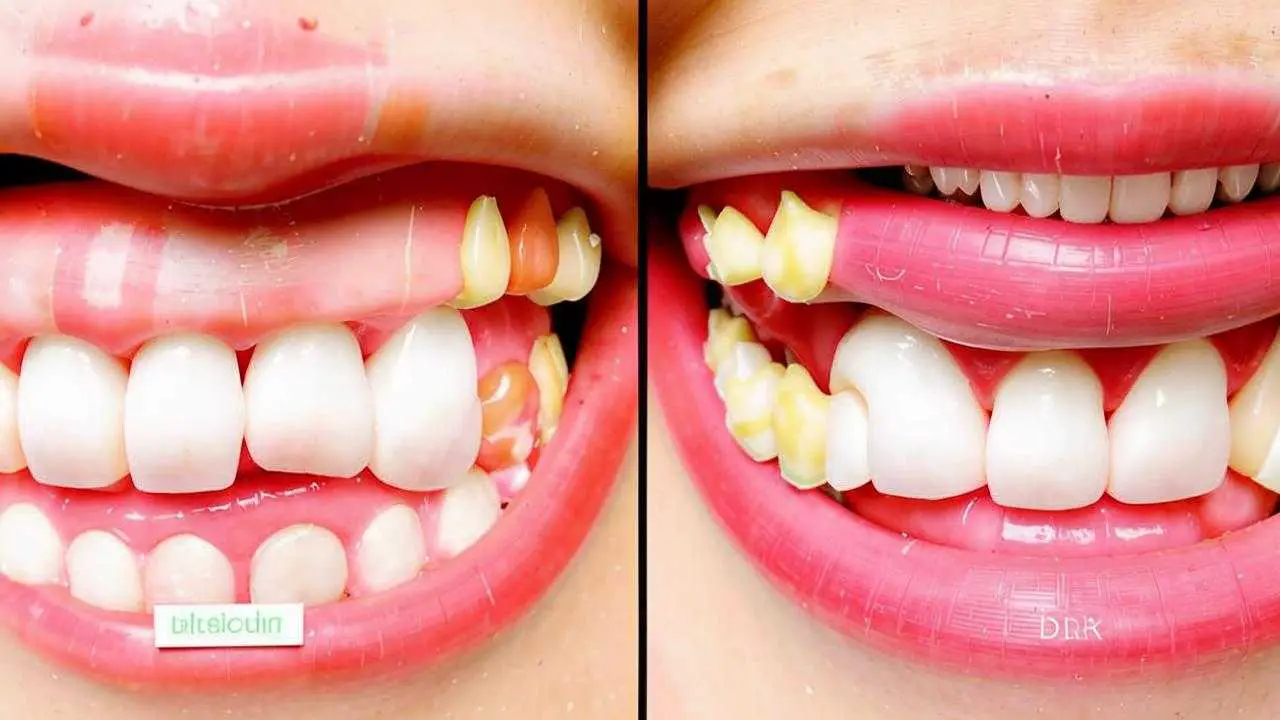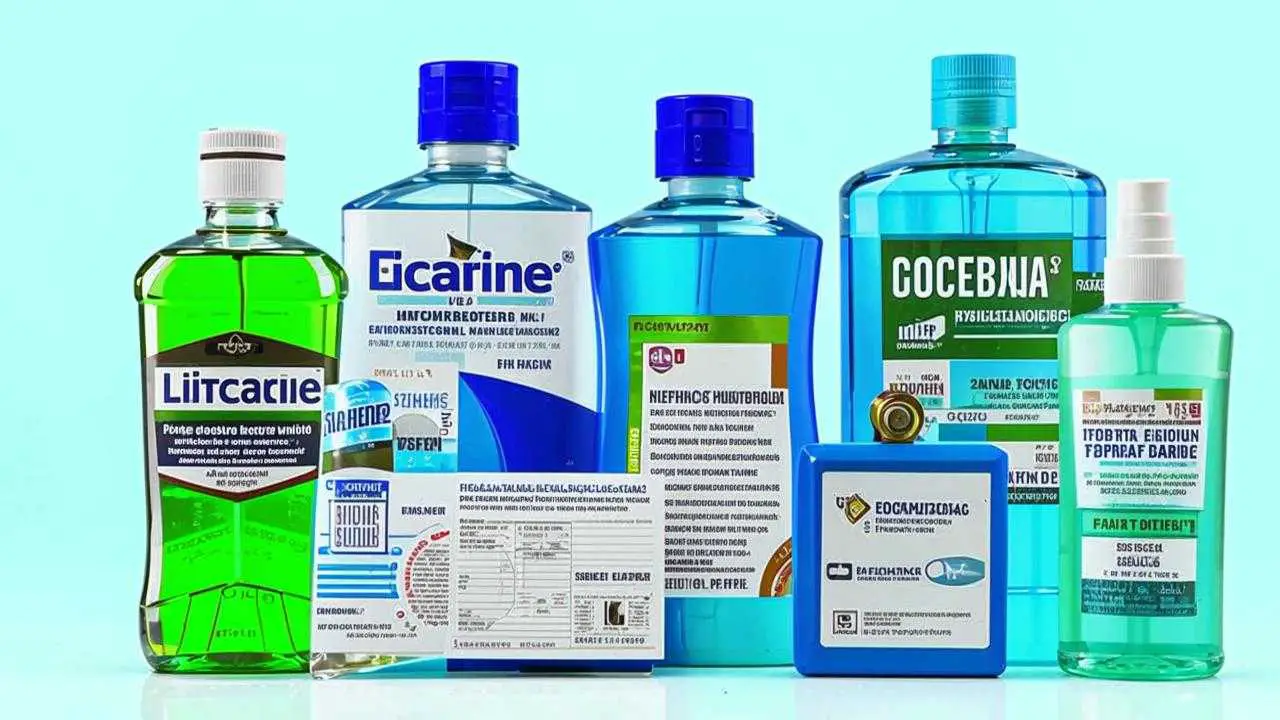Everyone has discomfort in the mouth after sleeping, but after hygienic cleaning it disappears. But sometimes, after 1-2 hours, the breath becomes stale again. Persistent breath odor is called halitosis. This is not only an aesthetic problem. Often, stinky breath indicates violations of the work of some organs and systems. It is not easy to identify halitosis independently. The appearance of a foul odor is usually written off to food, alcohol or smoking.
The easiest way to identify halitosis yourself is to bend the palm of your hand and breathe into it a little and then bring it to your nose. You can use dental floss, having identified its odor after cleaning the interdental spaces. Or wipe a cotton disk on the tongue, the inner surface of the cheek and bring it to the nose. If any method gave a positive answer, you should seek help from a dentist.
Masking the bad odor with mints or chewing gum is not the solution. Halitosis does not belong to an independent disease. It is a symptom that indicates another pathology. It is not necessarily associated with oral health – the cause is different conditions that contribute to the multiplication of bacterial microflora. Highly qualified dentists of the network of RUTT clinics in Moscow, modern equipment will help to quickly identify the cause of the symptom, finally remove bad breath.
Clinical manifestations
If bad breath smells only in the morning, after sleep, we are talking about physiological halitosis. This is due to a decrease in saliva production at night, which causes a rapid multiplication of anaerobic bacteria. After hygienic cleaning, discomfort disappears, breath remains fresh.
If bad breath smells even after brushing, we can confidently speak about the pathological nature of the symptom. The nature of halitosis is determined by the cause of its appearance:
- Purulent odor is observed against the background of dental, ENT diseases (pharyngitis, laryngitis, periodontal disease);
- With dehydration, diabetes mellitus, acetone odor from the mouth is noted. Also, the taste of acetone is characteristic if a person follows a strict diet, fasting for therapeutic purposes. Deficiency of carbohydrates contributes to the formation of ketone bodies, which when breathing can resemble the flavor of nail polish remover.
- “Uremic” breathing is characteristic of patients with renal failure, liver dysfunction, diffuse toxic goiter. In the air exhaled by such patients, the odor of ammonia is determined;
- Putrid odor often accompanies bronchitis, pneumonia, carcinoma or lung abscess, bronchiectatic disease;
- Sour odor appears with fungal lesions of the mucosa of the oropharynx, peptic ulcer and 12-acid peptic ulcer with increased acidity.
Bad smell many pathologies of the mucosa, alcohol hangover, smoking, metabolic disorders and other pathological conditions. If you can not remove the odor of breath after hygienic cleaning, you need to seek help from a dentist. The doctor will find out the cause of halitosis, if necessary, refer for consultation to a specialist of another direction (therapist, gastroenterologist, endocrinologist).
Causes of halitosis
All factors that contribute to the occurrence of halitosis are divided into 2 groups:
- Local – related to the condition of the oral cavity;
- General – related to the health of internal organs and systems.
In most cases, the appearance of halitosis is due to dental causes. Bad breath appears due to anaerobic bacteria living in dental plaque, calculus. These microorganisms release various volatile compounds (hydrogen sulfide, dimethyl sulfide, ammonia, trimethylamine, etc.) that affect the freshness of breath.
Dental causes of breath odor
The main causes of local halitosis include:
- poor oral hygiene, accumulation of bacterial plaque, formation of hard dental deposits;
- dental caries and its complications;
- stomatitis, periodontitis, periodontal disease;
- glossitis, gingivitis, cheilitis, pulpitis;
- alveolitis, peri-implantitis, pericoronaritis, etc.
Local halitosis may be accompanied by the following symptoms:
- Looseness, swelling, bleeding gums, formation of gingival pockets;
- tooth mobility;
- white, yellow plaque on the oral mucosa;
- increase in the volume of gingival papillae between the teeth;
- pain, swelling of the oral mucosa.
Bad breath in an adult can occur when wearing a bracket system, dentures. This happens if the structure is installed incorrectly, food residues accumulate under it, insufficient care is provided.
Stinky breath can be observed in both adults and children. The causes of children’s halitosis are the same as those of adults. Therefore, treatment should begin with a visit to the dentist. Often, to eliminate breath odor in a child, it is enough to teach him to properly brush his teeth, cure tooth decay.
Non-dental causes of halitosis
In practice, it often happens when it is enough to remove plaque and calculus to eliminate bad odor. In dental deposits a large number of pathogenic microorganisms that not only provoke stinky breath, but also cause inflammation of the mucosa, periodontal tissues. However, sometimes bad odor has a more complex cause.
The result of cleaning tartar
General halitosis can be caused by the following reasons:
- Gastrointestinal diseases (gastroesophageal reflux disease, peptic ulcer disease, gastric carcinoma);
- ENT pathology (sinusitis, maxillary sinusitis, rhinitis, foreign bodies in the nasal passages);
- respiratory system diseases (bronchitis, pneumonia, bronchoecstatic disease, etc.);
- systemic diseases (hepatitis, liver cirrhosis, renal failure, leukemia);
- endocrine disorders (metabolic syndrome, diabetes mellitus, endemic goiter).
Bad breath will not disappear if you disguise it with fragrant flavors of chewing gum or tooth rinses. Initially, it is necessary to identify and eliminate the root cause of the unpleasant manifestation.
Additional symptomatology will help the doctor understand why the breath smells. If the dentist is sure that the problem is not related to oral health, it is necessary to consult with a therapist. On the basis of anamnesis, clinical manifestations, the therapist will refer to a narrow specialist – otorhinolaryngologist, gastroenterologist, nephrologist, psychotherapist, endocrinologist, to make an accurate diagnosis and effective treatment.
What to do if there is an odor in the mouth
The principles of treatment of halitosis are based on the causes of its appearance. If the source of stinky breath is a focus of infection or carious cavity, the unpleasant symptom will disappear after a course of professional hygiene with the removal of supra-gingival, sub-gingival dental deposits, treatment of caries, removal of decayed teeth, not subject to restoration by orthopedic methods.
To cope with the problem faster will help antiseptic solutions. Mouthwash antiseptic inhibits the growth of pathogenic microorganisms, prevents the recurrence of inflammation. The drug for rinsing is chosen based on the recommendations of the dentist. How to treat breath odor, the doctor will decide after a comprehensive diagnosis.
If the root cause of halitosis was an inflammatory-infectious process of the gums and oral mucosa, prescribe local treatment with antibacterial, antiviral, antifungal drugs. Combined remedies contain components to control itching, redness, burning, pain, elimination of bad odor. With pronounced inflammation, systemic antibiotic therapy, immunomodulators, vitamins are prescribed. In situations where halitosis is caused by installed orthodontic or orthopedic constructions, take measures to correct them, replace them. Or select an alternative method of prosthetics, correction of the bite.
How to get rid of bad odor: folk remedies
Independently remove the odor of breath can be removed if the symptom is caused by external factors – errors in nutrition, poor oral hygiene, bad habits. The use of folk methods should be coordinated with a doctor, self-medication is not allowed.
- Drinking regimen – the simplest thing for fresh breath is to drink enough water. Dry mouth contributes to the reproduction of pathogenic microflora, releasing an unpleasant odor.
- Rational nutrition – a healthy diet includes foods high in vitamins, minerals, trace elements. To make the breath fresher will help to minimize the diet of simple carbohydrates (baked goods, sweets), aromatic products (raw onions, garlic), legumes, spices, coffee, alcohol. It is recommended to introduce more apples, carrots, broccoli, fermented milk products (ryazhenka, kefir, yogurt reduce hydrogen sulfide levels, hard cheese – reduces the acidity of food).
- Mouthwash – using decoctions of medicinal herbs (mint, fennel, chamomile), special rinses helps to remove food residues, prevents gingivitis, freshens breath.
- Cleaning the tongue – generating bad odor bacteria accumulate not only on the teeth, but in the cavities, cracks on the tongue, so every day it should be cleaned with special scrapers, brushes.
Home methods of combating stale breath will perfectly complement independent and professional hygiene. Uncomplicated measures will help to eliminate the cause of bad odor, avoid the development of serious disease.
Many patients are interested in how to get rid of breath odor, quickly freshen breath. The following methods will help:
- brushing teeth with a toothpaste with a pronounced aromatic effect (ice mint, menthol);
- using a refreshing product (mouthwash, active oxygen spray, oral foam);
- chewing parsley, dill, cloves, cardamom, ginger;
- the use of pepper, mustard, other hot spices in dishes.
Such measures will not help in the treatment of halitosis, but allow you to temporarily eliminate bad odor before important negotiations, meetings, dates.
Prevention of halitosis
- Choose a toothbrush with a suitable degree of hardness, change the hygiene accessory at least once every 3 months;
- Use toothpaste without abrasive particles to prevent damage to enamel;
- Brush your teeth thoroughly twice a day;
- floss or use an irrigator;
- rinse your mouth every time after eating;
- avoid bad habits (smoking, alcohol, excessive coffee consumption);
- drink enough water to prevent dry mouth;
- reduce consumption of foods with strong flavors;
- remember to clean the tongue, paying attention to the root of the tongue;
- visit the dentist regularly (every 6 months) for professional hygiene;
- treat ENT pathologies and internal diseases in a timely manner;
- strengthen immunity;
- avoid stress, nervous overstrain;
- in case of chronic diseases of internal organs, pay attention to the prevention of complications, take the prescribed therapy.



